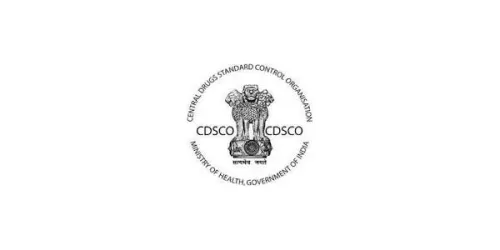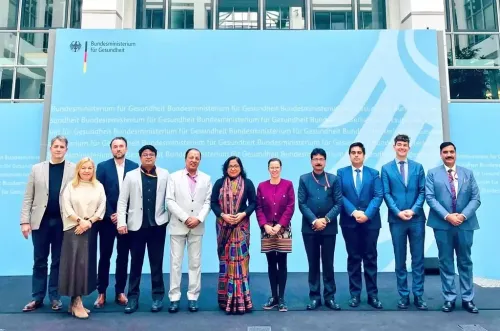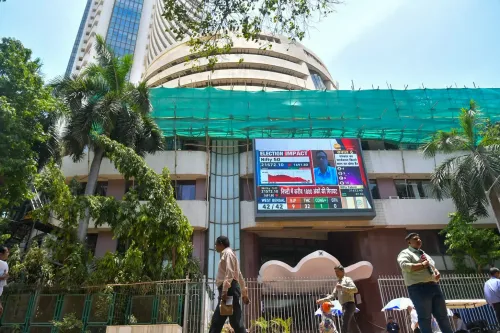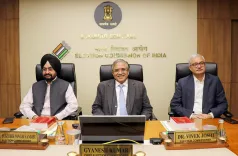Has the US CDC Changed Its Stance on the Vaccine-Autism Connection?
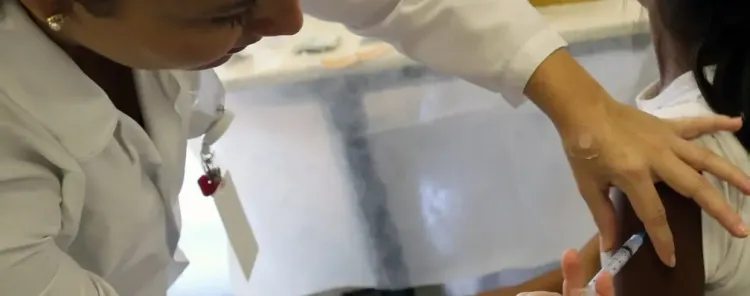
Synopsis
Key Takeaways
- The US CDC has recently implied a link between vaccines and autism.
- Experts firmly reject these claims, citing extensive research.
- The fraudulent study by Dr. Andrew Wakefield in 1998 started the anti-vaccine movement.
- Vaccines are essential in preventing outbreaks of diseases like measles.
- Public health relies on trust in scientific evidence.
New Delhi, Nov 21 (NationPress) The US Centers for Disease Control and Prevention (US CDC), the principal public health agency of the United States, has subtly shifted towards an anti-vaccine perspective, suggesting a possible link between vaccines and autism. Yet, medical professionals stepped in on Friday to debunk these assertions.
Historically a staunch opponent of the rising global anti-vaccine movement, the CDC’s recent position reflects an anti-vaccine sentiment propagated by Health and Human Services Secretary Robert F. Kennedy Jr., which is also backed by President Donald Trump.
According to the US CDC website, “the assertion that ‘vaccines do not cause autism’ lacks empirical support because research has not definitively excluded the possibility that childhood vaccines could contribute to autism.”
The revised webpage claims that studies establishing a connection “have been disregarded by health officials” and notes that HHS is conducting a “thorough evaluation of autism's origins.”
In contrast, the previous webpage stated: “No relationships have been established between any vaccine components and ASD.”
Dr. Rajeev Jayadevan from the Indian Medical Association, Kochi, communicated to IANS that the scientific consensus strongly indicates that vaccines do not increase autism risk.
He referenced a comprehensive Danish study tracking over 650,000 children, which discovered no association between the MMR vaccine and autism.
“The adjusted hazard ratio was 0.93, with a 95 percent confidence interval of 0.85-1.02, essentially demonstrating that vaccinated and unvaccinated children exhibited equivalent autism rates, even among high-risk demographics,” the expert explained.
He elaborated that the anti-vaccine movement originated from a fraudulent article in The Lancet by Dr. Andrew Wakefield in 1998, which falsely linked vaccines to autism.
Although this paper was eventually debunked and fully withdrawn, “the myth had already gained traction. Once a belief takes root in public perception, disproving it becomes exceedingly challenging,” Jayadevan remarked.
“Despite a lack of scientific backing, many individuals worldwide, including some in influential positions, continue to believe that vaccines cause autism,” he added.
Dr. Shefali Gulati, a pediatric neurologist at AIIMS, reiterated that vaccines do not heighten the risk of autism or other ailments.
“Extensive global investigations consistently reveal no causal link between vaccines—including the MMR or thimerosal-containing vaccines—and autism. While a handful of isolated studies have indicated weak correlations, none have established a causal link, and the preeminent evidence overwhelmingly disproves any connection,” Gulati told IANS.
“Despite the evidence, the continuation of the debunked vaccine-autism myth fuels hesitancy and contributes to the revival of preventable illnesses like measles,” the neurologist cautioned.
She further expressed concern that constantly addressing such debates diverts essential resources away from enhancing immunization initiatives and supporting early developmental interventions.

